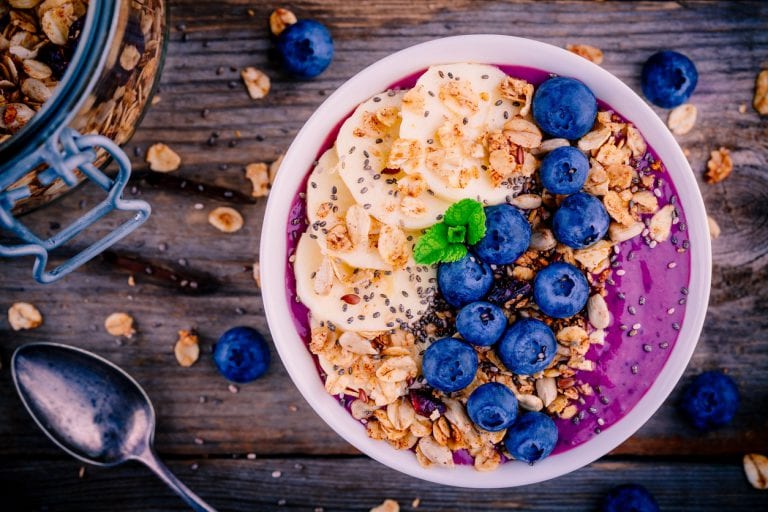Medicine or Malarkey: Can Food Actually Help Prevent Aging?
October 20, 2020

Foods like spinach, bell peppers, and blueberries receive lots of attention for their nutritional merit as “superfoods.”
Can they go beyond dietary benefits to deliver anti-aging or regenerative results?
What is it about these foods and others like them that can help you stay healthy as you age into your 40s, 50s and beyond? Learn more about how and why certain foods can prevent aging.
Aging and Your Skin
Scientists have long been fascinated by the connection between people’s health and their skin. Studies show that the vitamins and minerals in certain foods have antioxidants that can help keep the skin healthy and make it appear more youthful. While the most obvious way to note this connection is by the skin’s outward appearance, there is a great deal going on below the surface as well.
Fruits and vegetables have been singled out as a highly effective way to healthier skin. When you’re at the grocery store, look for produce that is vibrant in color. Brighter vegetables are full of carotenoids, or plant pigments. Carotenoids can help prevent sun damage and have anti-inflammatory properties—think red bell peppers, avocado, papaya and broccoli.
With these picks, you’ll get a dose of valuable vitamins such as A, C, E, K and B complex. These vitamins, coupled with minerals (such as magnesium, calcium, potassium and folate) and antioxidants, help your body produce proteins like collagen. Collagen is the primary component that gives your skin its elasticity and strength!
Load Up On Fiber
Though sometimes underrated when compared to the well-known benefits of antioxidants, a fiber-rich diet can also help your body reverse signs of aging. Eating the recommended 28 and 22 grams of fiber for men and women over the age of 51, respectively, is an important part of an anti-aging diet.
Did you know that fiber isn’t actually a nutrient because your body cannot break it down and absorb it? Because it stays in the body, fiber helps provide bulk and regulates your digestive system. Soluble fiber can help reduce cholesterol by binding to the bile acid produced by the liver. This prompts the body to glean the cholesterol from the blood to make more bile acids. These acids are important because they aid digestion and fat absorption.
Insoluble fiber helps reduce the amount of inflammation in your body. Inflammation can be a major concern as you age, as it has been linked to numerous diseases such as Alzheimer’s, arthritis, and certain types of cancer. Thanks to the amount of fiber found in whole grains, increasing your whole-grain intake can reduce inflammation thanks to the polyphenols and magnesium in whole grains.
If you’re interested in preventing signs of aging both inside and out, you can make simple changes to your diet that help. Fill up that grocery cart with lots of fruits and veggies and sources of insoluble fiber. To learn more about how diet affects your cholesterol, blood pressure and other health concerns, visit an urgent care center near you.
